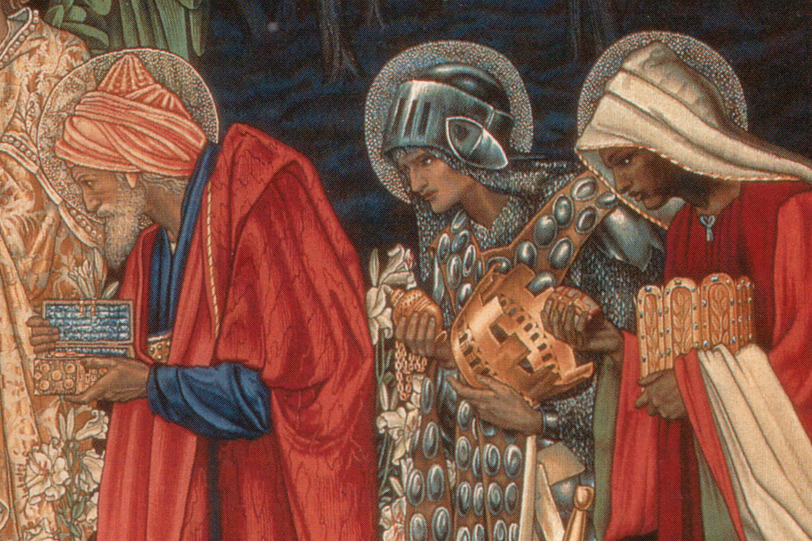
“Truly I tell you, no prophet is accepted in
the prophet’s hometown.” (Luke 4:24)
What the freak are you doing, Jesus?! You
had the crowd’s approval, and then you went and screwed it up. They really
liked your quote from Isaiah about preaching good news to the poor and proclaiming
the year of the Lord. They were all speaking well of you and were amazed at
your gracious words (Lk 4:22). Why did you have to piss them off when they hadn’t
even challenged you?
Oh. Yeah. I forgot. That’s what you do.
You shake the hornet’s nest, stir the poop pot, poke the bear, and rattle the
cage. And if we’re not just a teensy bit aggravated by your message, maybe we’re
not hearing you correctly.
Our gospel lesson for Epiphany 4, Year B
(Luke 4: 21-30) takes up where last week’s lesson left off. Jesus is back in
his hometown. He’s announced his mission to the poor and the oppressed and his
desire to see God’s justice done on earth. This seems to go over pretty well
with the home crowd until Jesus decides in verse 23 to remind them that they’re
no great big deal just because they saw him grow up or because they knew his
folks or even because they’re descendants of Abraham. No. Jesus isn’t their
personal property and they don’t get any special favors from him by virtue of
their history or ethnicity.
I guess I can see how that would tend to
upset some of the Chosen People. After all, they always believed that they were
just a notch or two better than other human beings on the planet. When they’ve
kept all of the Law of Moses and observed all the traditions, it must really
get their goat[i]
to be told that foreigners are just as valuable in the sight of God as they
are.
Yet this is what Jesus does—especially in
Luke’s gospel. Luke is really careful to present Jesus in two lights. First, we
see Jesus as breaking down the border wall between Jew and Gentile. He is
inclusive to all people and his love knows no distinction.[ii] Secondly, he supports his
position with the very history of God’s people and God’s Word. Jesus may be a
radical, but he’s not so radical that he forgets the deep charitable history
recorded and treasured in the scriptures. God’s people were blessed to be a
blessing to others. This is fundamental and always has been. Jesus didn’t just make
it up.
There are two obvious lessons here for the
American Church today. First, we can’t ever forget that we are in mission to
the entire world. I get really irked when I’m told by well-meaning church
council members that “Charity begins at home.” It doesn’t. Obligation begins at
home. Real charity begins when obligation to home ends and obligation to God’s
will for humanity becomes our passion.
The other important thing, I think, is
that we follow Jesus’ example of rootedness in our tradition. Again, this isn’t
to claim—like the old folks from Nazareth in our gospel story—that we’re any
better than any of God’s other children. Rather, it’s to remind us of who we are
and what we stand for.
Churches shrivel up and die when
congregants focus inwardly and exclusively. They also start heading for hospice
care when traditions become merely habits, bereft of the timeless truth and meaning
which gave birth to them.
If this is true for our churches, it’s
also true for our nation. I swear I don’t know what “America First” means. This
is a small planet with a globalized economy and one biosphere for everyone to
share. Yet there’s still plenty of room on this earth for everyone to be cared
for—except the greedy.
In this gospel lesson Jesus reminds us to
check our arrogant, stuck up ways, think inclusively, and remember that we’re
all brothers and sisters in God’s sight. Some will find this violates their
sense of entitlement, and they’ll be pretty outraged by it. Like Jesus,
however, we’re called to pass through the midst of them and be on our way.
God’s peace to you, my friend!
[i]
Does anyone still say “get your goat?” I never knew where that expression came from,
but my German grandmother used to say it all the time. It means piss you off.
And isn’t this just the sort of insulting thing that makes you want to elect an
unqualified leader, ban infidels from travelling to your country, and erect a
giant wall on your southern border?
[ii] In
Acts 10:34, Luke has Peter just blurt this out for those who didn’t pick up the
subtlety of inclusivity from Luke’s gospel.
.800w.tn.jpg)
